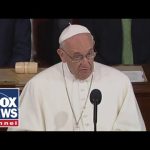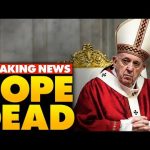The Catholic world is in mourning following the death of Pope Francis at age 88, marking the end of a papacy defined by dramatic shifts and controversies that have left the Church at a crossroads. While many in the media and secular circles have lauded Francis for his progressive stances and global outreach, it is crucial to remember that his tenure was also marked by deep divisions, especially among those faithful who value the Church’s traditions and doctrinal clarity. Francis’s legacy will be debated for years to come, but for millions of Catholics who cherish orthodoxy and the timeless teachings of the Church, this moment is an opportunity to reflect on the need for a return to foundational principles.
Pope Francis, born Jorge Mario Bergoglio in Argentina, rose to the papacy in 2013 after the historic resignation of Pope Benedict XVI. Unlike his predecessor, Francis often prioritized social and political activism on issues like climate change, immigration, and economic inequality over the defense of traditional Catholic doctrine. While compassion for the marginalized is a Christian duty, many conservatives felt that Francis’s approach blurred the lines between spiritual leadership and political advocacy, sometimes at the expense of the Church’s core teachings on life, marriage, and the sanctity of the sacraments. His repeated criticisms of Western nations’ immigration policies and his willingness to wade into contentious political debates left many Catholics feeling alienated and unheard.
Throughout his twelve-year pontificate, Francis appointed a record number of cardinals from outside Europe, fundamentally altering the makeup of the College of Cardinals. This move, while hailed by some as a step toward inclusivity, also diluted the influence of those who have long defended the Church’s doctrinal integrity. The upcoming conclave, which will select the next pope, is now dominated by Francis’s appointees, raising serious questions about whether the Church will continue down the path of progressive reform or rediscover its traditional roots. For conservatives, the hope is that this next chapter will bring a leader who is unafraid to defend the faith against the tides of secularism and moral relativism.
The process of selecting a new pope is steeped in centuries of tradition, and the world will be watching closely as the cardinals gather in the Sistine Chapel. The stakes could not be higher: Will the Church double down on the divisive policies of the Francis era, or will it embrace a shepherd who will restore clarity, unity, and orthodoxy to a flock in desperate need of spiritual direction? The faithful deserve a leader who will stand firm on the teachings that have guided the Church for two millennia, rather than one who seeks to accommodate every passing trend of the modern world.
As Catholics everywhere pray for the soul of Pope Francis and for the guidance of the Holy Spirit in the coming conclave, there is a renewed call for courage, conviction, and fidelity to the Gospel. The Church must not lose sight of its mission: to proclaim the truth without compromise, to defend the dignity of every human life, and to offer the world not just social programs, but the saving message of Jesus Christ. The death of Pope Francis is not just an end, but a pivotal opportunity for renewal—one that, if seized, could restore the Church’s moral authority and spiritual vitality for generations to come.




